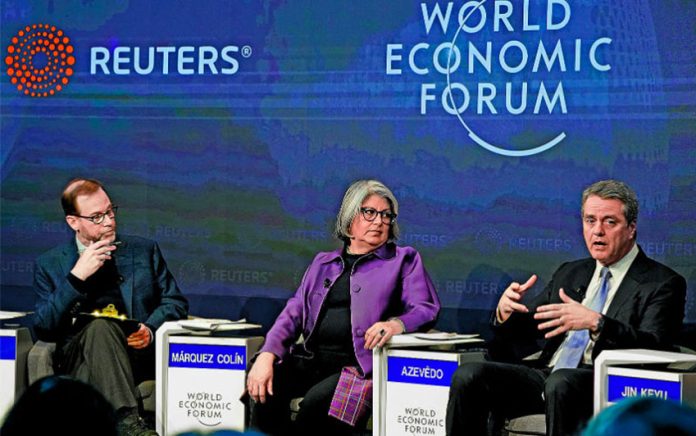Mexico is willing to enhance its role on the world stage but not to the detriment of the country’s labor force, says Economy Secretary Graciela Márquez Colín.
Though Mexico is inclined to boost its participation in global commerce, lower salaries and low-wage jobs won’t be the price of doing so, Márquez told investors attending the World Economic Forum (WEF) in Davos, Switzerland.
“Last year we had a 16% increase in the minimum wage at the nominal rate, and a 13% increase in real salaries, and this year will bring a new increase of 20% in nominal terms and 17% in real terms,” she said.
In her opening statement at the WEF she said that macroeconomic stability alone will not suffice if it doesn’t result in reduced poverty and economic disparity.
While admitting to zero growth during the first year of the Andrés Manuel López Obrador administration, she predicted a much better outlook for this year and the rest of the president’s term, thanks to the new US-Mexico-Canada Agreement, which is now awaiting ratification by Canada.
One of the key advantages that Mexico provides global and domestic investors is that “there is no social discontent,” she pointed out at the session devoted to perspectives on Latin America. “The Mexican president’s popularity sends a clear sign that we won’t be facing any demonstrations for the rest of his administration.”
Moderated by Alicia Bárcena, executive secretary of the UN Economic Commission for Latin America and the Caribbean, the panel of industrialists at the Davos summit requested an update on investment and new regulations in Mexico. Márquez responded that the Mexican market’s strengthened overseas presence is due to a robust domestic economy that can create well-paid jobs.
“Investors ask us how Mexico will confront the challenges of this century’s third decade,” said the economy secretary. “And in response we want to make it clear that we’re committed to macroeconomic stability, which we understand is key to driving growth.”
Source: El Economista (sp)
